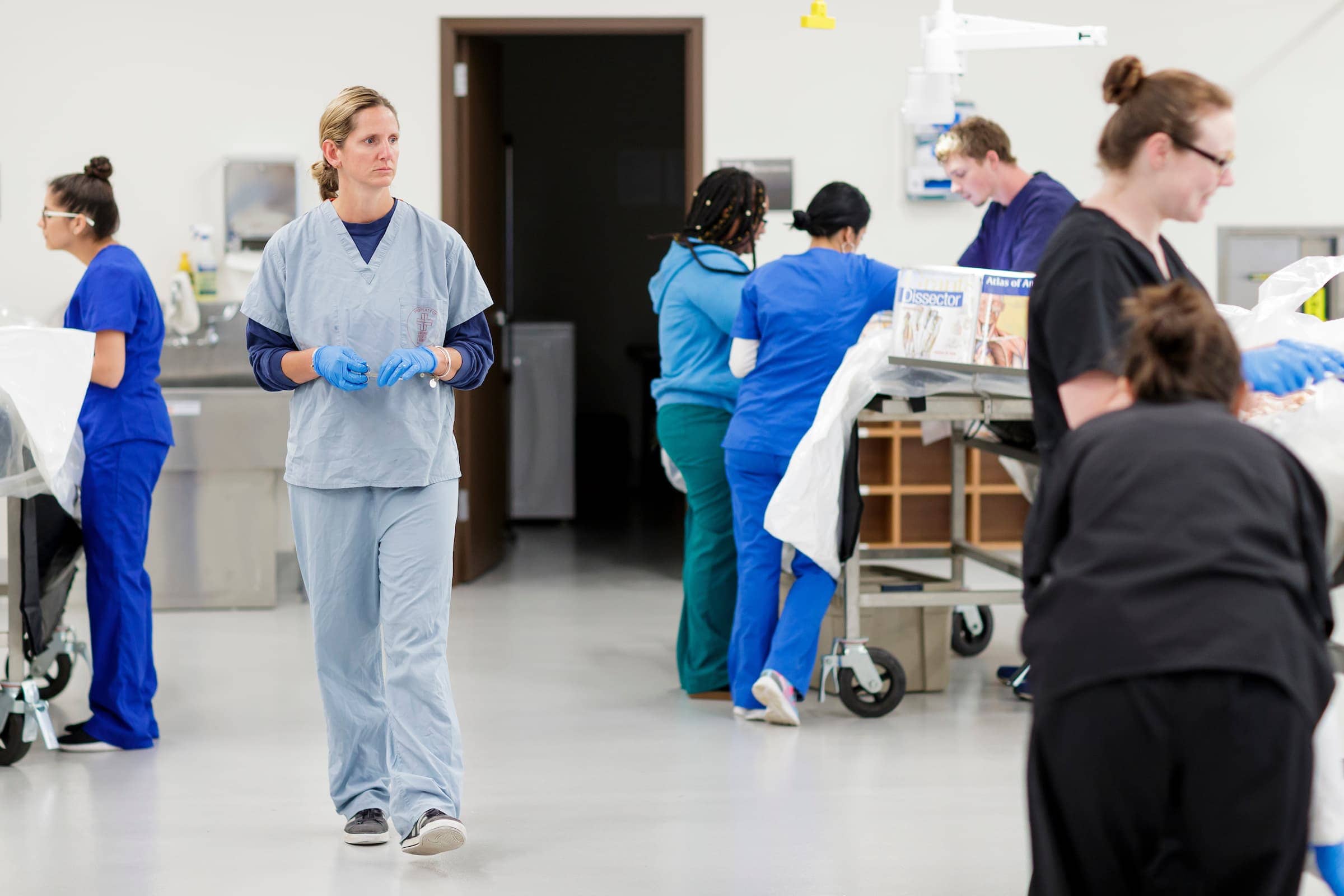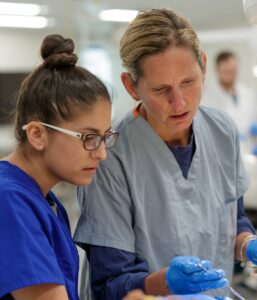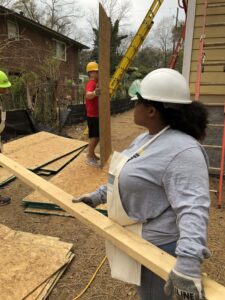

Following its successful campaign to receive full accreditation for its newest doctoral program, Brenau University recently named Dr. Heather Ross chair of the Department of Physical Therapy.
Ross replaces Dr. Kathye Light, the founding chair of the department who in the past five years has steered it from its early planning stages, through the graduation on May 4 of its first cohort of 37 doctors of physical therapy, and earlier this month, to full recognition by the national Commission on Accreditation in Physical Therapy Education. Following that accomplishment, the university awarded Light a 15-month sabbatical, after which she will return to a newly created position to spearhead interdisciplinary research initiatives that will, among other things, keep the Brenau PT program in good standing with the accrediting body.
“Having been accredited, we are entering a new phase with the program,” said Ross, who is also an associate professor in the Brenau University College of Health Sciences department. “Our goal now is to maintain it, improve it and really refine what we are doing. I think my skill set will really lend itself to that process. I’m very excited.”
Ross is a fellow through the Education Leadership Institute sponsored by the American Physical Therapy Association. The fellowship is a yearlong blended learning program that is intended to develop innovative and influential leaders in physical therapy education.
“When I was at the University of Florida, I got really involved in departmental workings and realized I enjoyed it,” Ross said. “So this has been an aspiration. I was already planning to advance my leadership skills through that fellowship, and this dovetails right in.”
Ross joined the Brenau faculty in May 2015 – just as the first PT students arrived on campus. She earned a Ph.D. in anatomy and neurobiology from Virginia Commonwealth University in 2006. She then worked as a postdoctoral fellow in the University of Florida’s Department of Anatomy and Cell Biology. From 2009 until 2015, Ross served on the faculty of the Department of Physical Therapy at the University of Florida. There, she was named a K12 Scholar on the Rehabilitation Research Career Development Program.
Ross’s research interests are centered on the combinatorial approach of neural stem/progenitor cell therapies and rehabilitation strategies following neural insult. Specifically, Ross is studying whether progenitor cell transplant coupled with cell- and systemic-based modulation, including rehabilitation approaches, can synergize to optimally promote recovery following spinal cord injury. She is author or co-author on several manuscripts, book chapters, or NCBI DNA submissions. Her current grant support is from the Foundation for Physical Therapy Pilot Grant Program.
Light, who was the first hire for the department in July 2013, was charged with building a world-class physical therapy department from scratch. Simultaneously the Brenau University Downtown Center in Gainesville underwent a nearly $7 million transformation into a state-of-the-art space for teaching, research and clinical services, including installation of a $750,000 human anatomy lab for use of physical therapy and other health sciences students. In addition to hiring faculty and overseeing final construction of facilities, it was her job to guide the university through the CAPTE accreditation steps so it could recruit and enroll student.
Light, who earned undergraduate and master’s degrees in physical therapy from University of Missouri and Virginia Commonwealth University, a second masters in therapeutics and exercise science from the University of Iowa and a Ph.D. in kinesiology and neuroscience from the University of Texas, also came to Brenau from the University of Florida, where she had been on the faculty for 20 years. Previously she had spent five years on the faculty of the University of North Carolina School of Medicine in a career punctuated with extensive research and publishing in peer-reviewed academic and professional journals and research grant participation.
Brenau Provost Jim Eck said that the university granted her the sabbatical lasting until August 2019 “in recognition of and appreciation for her technical leadership through the accreditation process.” Although she plans to continue her own research and see patients at the Brenau clinic during her leave, it is planned that she will return to Brenau as the Roslyn Wallace Distinguished Research Professor to build and execute multi-disciplined applied research projects involving physical therapy, occupational therapy, nursing, gerontology and other Brenau academic branches.
The Brenay PT department, Light explained, “has been a teaching institution, but as it moves beyond this initial accreditation, the next step is to expand significantly into research. Going forward, the accrediting body in its continuous evaluation of the program will like to see that a teaching school is keeping up with and ahead of the profession through research.”
In the interim, Light will continue seeing patients at the clinic that is now fully operational and continue with her research, specializing in motion and balance issues due to injury or illness, primarily among older patients. She also wants to more fully develop her idea for a community wellness cooperative that will connect people in Gainesville, especially older adults, to a system of support and wellness opportunities.
“One of the challenges in health care delivery is that you go to the doctor, maybe spend some time in the hospital because of a fall, a little time in rehab and then just go back home,” she said. “After that, you’re disconnected until the next time something happens. We want people to come into a program where they stay engaged across the community, not just with health care providers.”
She suggested that the Brenau collaborative research activities should focus on areas in which the university, its faculty and its students already have considerable expertise and interest.
“There are all kinds of cool things going on at Brenau and in the community that could all be pulled together,” she said. “We should make research pursuits easy for people. Let’s study what we do instead of something we are not doing.”

